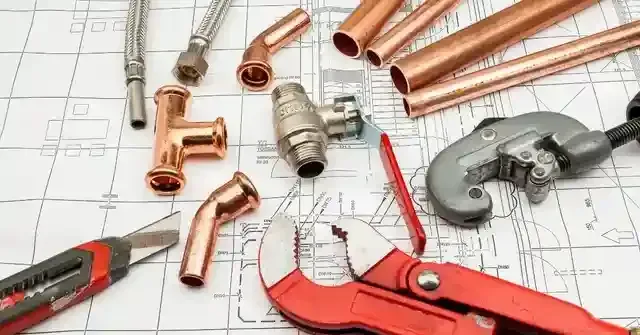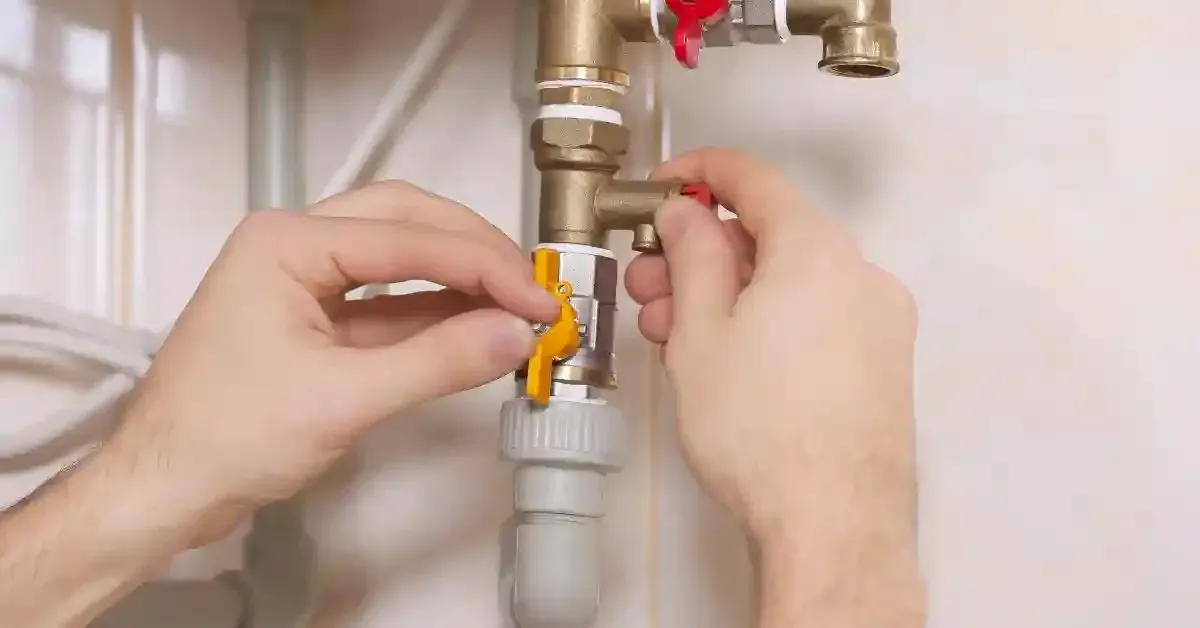Why Pipes Fail and What You Can Do About It
Pipes are the lifelines of your home’s plumbing system, but like anything, they don't last forever. Over time, pipes can become damaged or corroded, leading to costly repairs and potential water damage. So, why do pipes fail? It’s often due to a combination of age, wear and tear, clogs, or even external factors like weather and shifting soil. Recognizing the signs of a failing pipe early on can save you from bigger headaches down the road. In this blog, we’ll dive into the common reasons pipes fail and offer practical tips on what you can do to prevent issues before they become major problems. Let’s get into the details and keep your plumbing in tip-top shape.

Signs Your Pipes Are on the Brink of Failure
When pipes begin to fail, there are often subtle signs that something is wrong. Slow drainage, discolored water, and unusual sounds like banging or gurgling could indicate a deeper issue with your plumbing system. Leaks are another common red flag that’s easy to spot, whether they’re in your walls, ceilings, or under your sinks. If you’ve noticed any of these signs, it’s important to act quickly. Ignoring them can lead to more significant damage, such as water damage or mold growth, which can cost you much more to fix in the long run.
By recognizing these warning signs early, you can save yourself from larger, more expensive repairs. An experienced plumber can help pinpoint the problem before it escalates, ensuring your home stays safe from potential water damage and further complications.
How to Prevent Pipe Damage Before It Happens
Preventing pipe damage starts with simple maintenance steps, like insulating pipes during colder months to protect them from freezing. Regularly checking for leaks or weak spots can also help catch minor issues before they turn into larger problems. You should avoid flushing items like grease, wipes, and paper towels down the drain, as these can easily clog pipes and create pressure that leads to cracks. Having your plumbing system professionally inspected every few years is another proactive measure that can prevent future issues.
Sometimes, the age of the pipes can be the biggest factor in damage. Older pipes, particularly those made of galvanized steel or cast iron, are more prone to corrosion and failure. If you’re living in an older home, consider upgrading your plumbing system to more durable materials like copper or PVC. A plumber can assess the condition of your pipes and help you decide on the best preventive measures to ensure long-term plumbing health.
Top Causes of Pipe Failures and How to Avoid Them
The most common cause of pipe failure is corrosion, especially in older homes with metal piping. Over time, pipes naturally rust and weaken, which can lead to leaks, blockages, or even bursts. Mineral buildup from hard water is another major culprit, clogging pipes and reducing water flow. Additionally, pipe shifts caused by temperature changes or ground movement can cause pipes to crack or separate.
To avoid these issues, it's essential to keep an eye on your water quality and address any buildup or leaks promptly. If you live in an area with hard water, installing a water softener can reduce mineral deposits. Regular pipe inspections can help spot corrosion before it becomes a serious issue, giving you time to replace old pipes before they fail completely.
The Importance of Regular Pipe Inspections for Longevity
Just like any other part of your home, pipes benefit from regular check-ups. Scheduling a professional pipe inspection every few years ensures that any minor issues are addressed before they turn into major problems. These inspections allow plumbers to identify early signs of corrosion, leaks, or weak points that might otherwise go unnoticed. Having a thorough inspection can help you plan for necessary repairs or replacements, preventing unexpected emergencies.
Routine inspections also help optimize your home’s water efficiency, as plumbing issues can often cause unnecessary water wastage. Regular attention to your pipes can help extend their lifespan, saving you money in the long run by avoiding major repairs or complete replacements.
Emergency Plumbing: What to Do When a Pipe Fails
If a pipe fails suddenly, quick action is crucial to minimize damage. First, shut off the main water supply to stop water from continuing to flood the area. If the break occurs inside the home, try to contain the water with towels or a bucket while you wait for help. Calling a plumber immediately is your best option, as they can assess the situation and fix the problem quickly.
In the case of more severe failures, like a burst pipe, the damage can be extensive and costly. That’s why it’s important to have the contact information of a trusted emergency plumber on hand. An expert can perform temporary fixes to mitigate further damage and then come up with a long-term solution to replace or repair the broken pipes.
How Pipe Maintenance Saves You Money in the Long Run
Proper maintenance of your pipes is one of the most effective ways to save money over time. Small issues, like slow drainage or minor leaks, can often be easily repaired with little expense when caught early. However, if left untreated, these small issues can escalate into more significant problems, such as burst pipes or flooding, which require costly repairs. Routine maintenance, such as clearing drains and replacing worn-out parts, can help prevent these costly emergencies.
Additionally, regular maintenance can extend the life of your plumbing system, reducing the need for premature replacements. Ensuring your pipes remain in good condition allows your plumbing system to function efficiently, avoiding water waste and reducing your water bill. By investing in preventive care, you’re saving yourself from larger financial headaches in the future.
Expert Tips for Extending the Life of Your Pipes
Extending the lifespan of your pipes doesn’t require major changes—simple habits can go a long way in preventing premature failure. One of the most effective tips is to avoid putting anything down your drains that can cause buildup, such as grease, food scraps, and non-degradable items. You should also inspect your home regularly for signs of leaks or wear and tear, particularly in places where pipes are exposed, like basements or attics.
In addition to regular inspections, consider upgrading to newer, more durable materials, especially if your home still has older pipes like galvanized steel. Pipe insulation can help protect against freezing during winter, which can crack and burst pipes. A little attention to these details can make a significant difference in the long-term durability of your plumbing system.
What to Expect from a Professional Pipe Replacement Service
When it comes to replacing pipes, hiring a professional ensures the job is done safely and efficiently. A plumber will assess your system and recommend the best replacement options, considering factors like the age of your current pipes, your home’s layout, and any underlying issues. Expect the process to involve removing old pipes, inspecting for any underlying damage, and installing new, durable pipes that meet modern standards.
After the replacement is complete, a professional will perform tests to ensure your new pipes are working properly. This may include checking for leaks, ensuring proper water pressure, and ensuring your system is free from blockages. With a professional replacement, you can enjoy a more reliable plumbing system and peace of mind knowing that your home’s water supply is in good hands for years to come.
Conclusion
Understanding why pipes fail and how to prevent it can save you from costly repairs and potential water damage. By staying on top of regular maintenance, identifying early signs of issues, and addressing problems promptly, you can significantly extend the life of your pipes. Taking proactive steps, like avoiding harsh chemicals or upgrading old pipes, can also go a long way in protecting your home. If you ever notice any signs of trouble, don’t wait to reach out to a professional.
For reliable plumbing solutions in Doylestown, PA, On Point Plumbing & Building is here to help. Call us today at 267-263-7673 to schedule an inspection or discuss your plumbing needs. We're ready to ensure your home’s plumbing stays in top condition!
You might also like
Why Plumbing is a Good Career: From Training to Success




